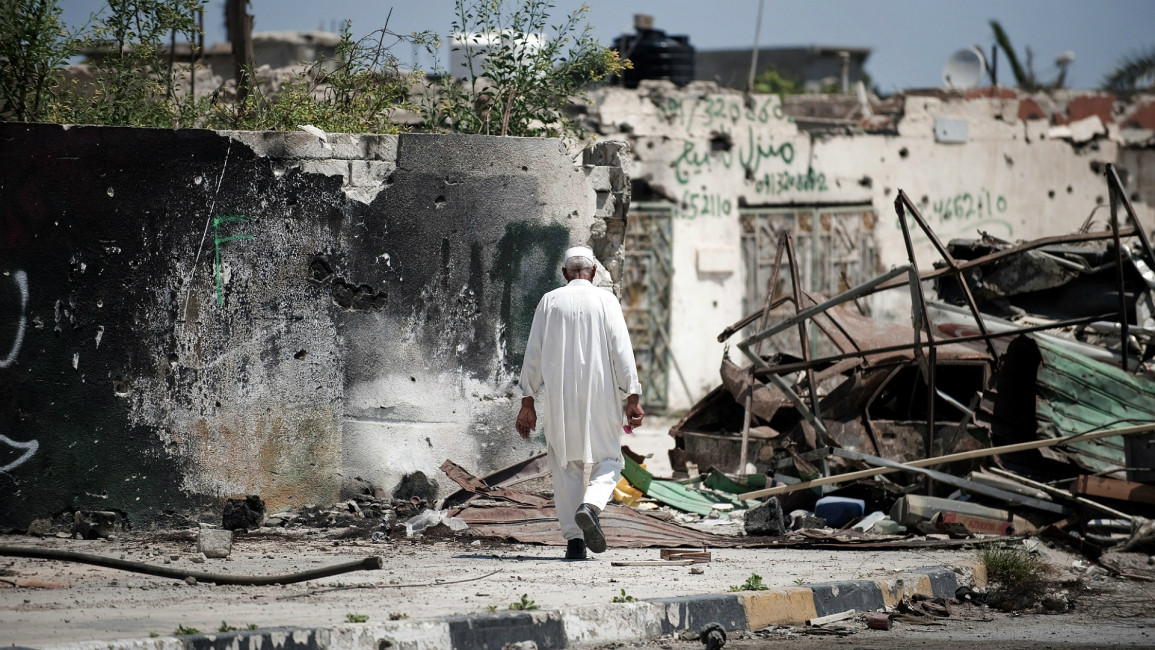European diplomats attempt to pave Libya's road to recovery
The European Union has offered "concrete" support to Libya's new unity government to boost security and the economy - including training for the Libyan coastguard to stem the influx of illegal migration across the Mediterranean.
After agreeing an aid package worth more than $100 million, the EU's defence and foreign ministers held a video conference on Monday night with Libyan prime minister-designate Fayez al-Sarraj, who is heading the UN-backed administration.
EU diplomatic chief Federica Mogherini said the new government's priorities included security, the fight against the Islamic State group and Libya's economic recovery.
"There is also the need to work together on a comprehensive approach on migration - border control, training and assisting in particular the coastguard," she said.
The EU discussions come after British Foreign Secretary Philip Hammond flew into Tripoli on Monday, hot on the heels of visits last week by the foreign ministers of Italy, France and Germany for talks on shoring up the new administration.
He was taken under tight security to the heavily protected naval base where Serraj's administration is struggling to establish its authority.
| What's been going on in Libya? | |
|
The General National Congress was the Islamist-led elected body ruling Libya for two years following Gaddafi's ousting and death. After its 18-month deadline to form a new constitution passed in January 2014, the body resolved to extend its mandate. |
He said Britain supported Serraj's efforts to "restore peace and stability to the whole of Libya."
Hammond announced a new £10 million ($14 million) cash injection to help the new administration "strengthen political institutions, the economy, security and justice".
The international community views Sarraj's Government of National Accord (GNA) as the best hope for peace in oil-rich Libya, which has been roiled by turmoil since the 2011 ousting and killing of dictator Muammar Gaddafi.
Concern has been compounded by the expansion of the Islamic State group in Libya, where the extremists have set up a bastion just 300 kilometres (185 miles) from Italy. Adding to the mix of uncertainty is the continuing migration of thousands across the Mediterranean.
| Read more: 'Here they die slowly, at sea, they die fast' |
"Ensuring security for the Libyans is a vital question for them, but also a vital question for countries in the region" and "for European countries", said French Foreign Minister Jean-Marc Ayrault.
The EU is planning to expand its "Sophia" navy operation fighting people-smugglers operating off the Libyan coast.
This will allow the mission to "contribute to general security... for example through the potential reinforcement of the capacities of the Libyan coastguard", said a statement adopted by all 28 EU nations.
But no element of the plan would take effect without an explicit request from the new Libyan authorities.
"Sophia" currently only operates in international waters as it does not have the green light from either Libya or the UN to move closer to the coast.
The EU has prepared an aid package of 100 million euros ($113 million) for economic, humanitarian and development issues in Libya.
It has also said it is ready to help train the police and coastguard and fight terrorism.
Libya's parliament postponed a vote of confidence expected to be held on Monday on the unity government, even as it asserted its authority by assuming control of two ministries.
Libya has had two rival administrations since a militia alliance took over Tripoli in mid-2014, setting up its own authority and forcing the elected parliament to flee to Tobruk.
Agencies contributed to this report



